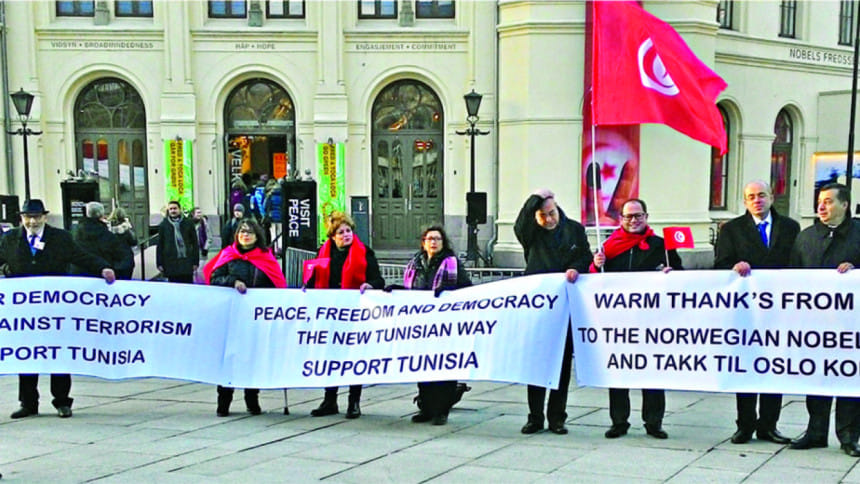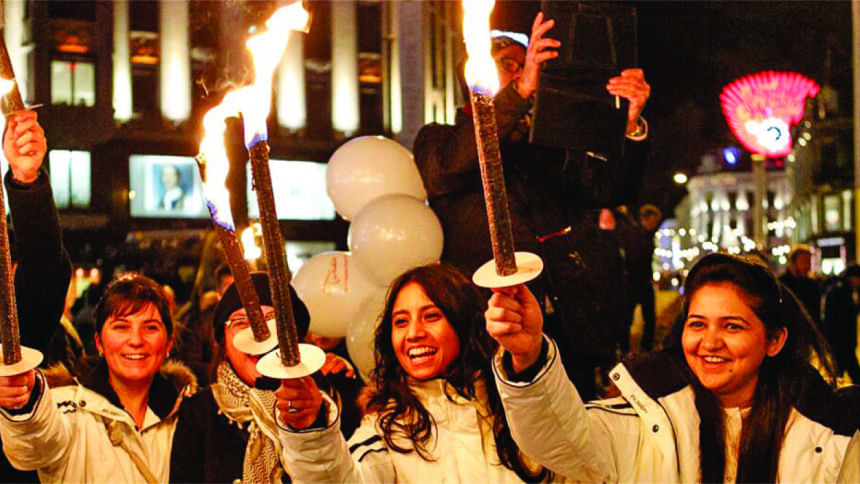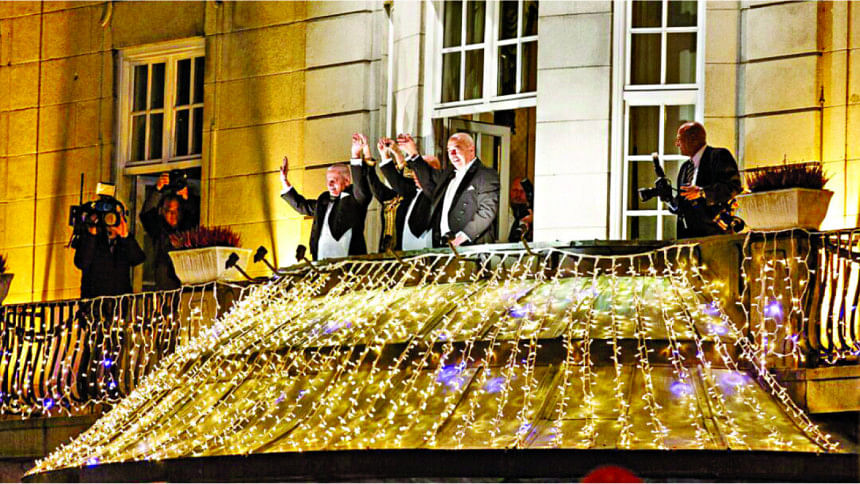My word is free: The Tunisian transformation

Photos: courtesy
“I am those who are free and never fear, I am the secrets that will never die. I am the voice of those who would not give in, I am free and my word is free.”
As the lyrics wafted through the chambers of the Oslo City Hall, flowing through chief protest-song singer Emel Mathlouthi, the truth dawned upon the gathered audience. For days, many had been wondering why the Tunisian National Dialogue Quartet, were to be given the Nobel Peace Prize, overlooking perhaps more marketable candidates such as Pope Francis, Angela Merkel or even Edward Snowden. In Emel Mathlouthi’s words, which half the audience had trouble understanding, the truth was to be found.
While Mathlouthi did not sing in English, the melody itself was the message. The Tunisians were a proud free people and they would no longer be bound by the chains by a dictator and it was time now for a pluralistic democracy, where power would no longer rest in one individual’s hands. Outside the City Hall, Tunisians, locals and visitors, had congregated with banners and flags draped across their bodies. As Mathlouthi entered her last verse, hardened men broke down in tears and for an entire single minute, pervasive divisions were erased. In that single moment of unity, the entire Tunisian spirit, a culture that has allowed numerous other cultures to nurture alongside it, could be perfectly encapsulated. This was freedom in the making.

While not glossing over the achievements of other candidates, one must see why the Tunisian National Dialogue Quartet stands so well-distinguished. The revolution, so to speak, which they steered in the right path, literally began with a single spark. With the population already disgruntled and the iron grip slowly slipping, the embers glowing and the tinder ready, Mohammad Bouazizi lit a fire that would consume half the country. On 17th December, 2010, Bouazizi, a street vendor, set himself on fire, as protest against the constant harassment and humiliation faced at the hands of a municipal officer and her aides. While such incompetence was widely practiced, Bouazizi blazed a trail through his selfless and at the end, desperately mortal act. His final screams resonated with a populace tired of a government, who governed for themselves and not for the people.
Upon Bouazizi’s death from his injuries, the Tunisians took to the street with a flourish and a purpose and the then president Zine El Abidine Ben Ali finally stepped down after 23 years in power. Imagine the power vacuum such a move created when news first spread that the president had fled overnight. This is when the careful intervention of the Tunisian National Dialogue Quartet stood as the final beacon of hope. The Quartet is made up of The Tunisian General Labour Union, The Tunisian Confederation of Industry, Trade and Handicrafts, The Tunisian Human Rights League and The Tunisian Order of Lawyers. Historically, these factions were opposed to each other, following different ideologies, but when the time came to reunite, they did so. It was the leaders from these group, felicitated in Oslo, who brought Tunisia from the brink of anarchy, a condition prevalent ever since the glorified but often misunderstood Arab Spring.
The Tunisian Revolution, or the Jasmine Revolution, wasn’t the work of any one individual or even any four. It was a collective effort and one that set precedent for others to follow. The Nobel Peace Prize is about acknowledging “the most or the best work done for fraternity between nations, for the abolition or reduction of standing armies and for the holding and promotion of peace congresses,” and the Tunisian National Dialogue Quartet set out to do just that. The country faces numerous challenges going forward but at least the people can now rightfully say that they are free, as free as their words were always meant to be.
The Telenor group made arrangements for youth delegates from all over the world, part of their Telenor Youth Forum experience, to witness the Nobel Peace Prize ceremony first hand. This was of course made possible by having The Nobel Peace Center, "the museum for the most prestigious award" as partners. For all, it was an unforgettable moment and indeed an inspirational one. Being there, in a room full of immortals, minus the glitz and glam perpetuated by the media, one could truly comprehend the essence of what it meant to be bestowed with such a prize; it wasn’t just recognition for work done but rather an elixir for work that is still to be done. It is an answer to a call. It is only the start. For that one moment, as Emel made her exit, the global audience stood with Tunisia as one, a world shorn of all artificial boundaries and nationalities, just as people. That perhaps is the most enduring success of the Nobel Peace Prize and perhaps one of Telenor’s, sponsors of the Nobel Peace Prize Center, most important legacies.


 For all latest news, follow The Daily Star's Google News channel.
For all latest news, follow The Daily Star's Google News channel. 



Comments